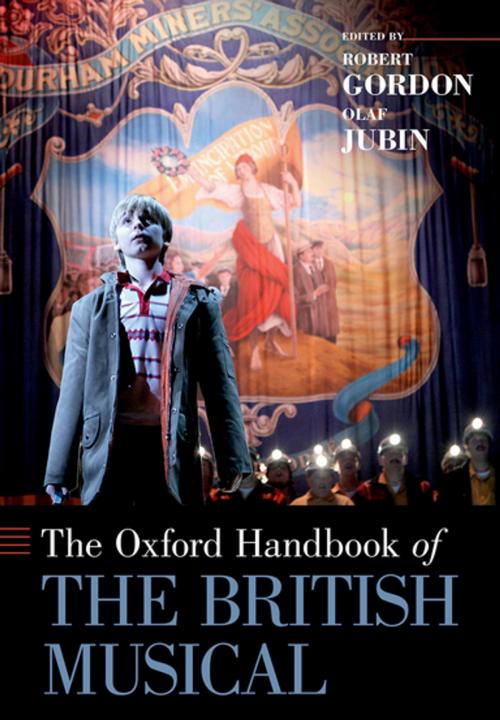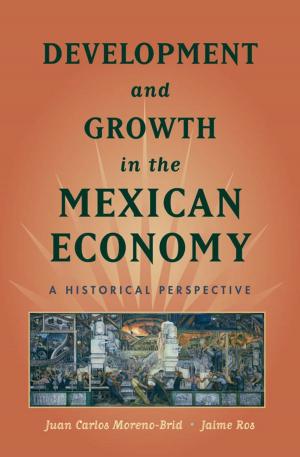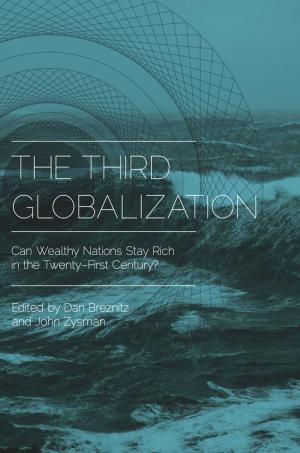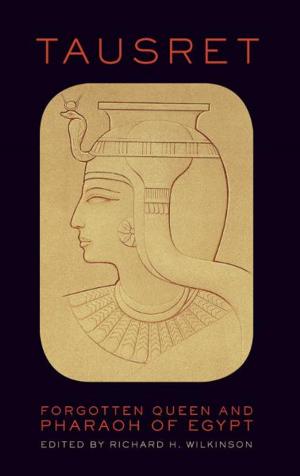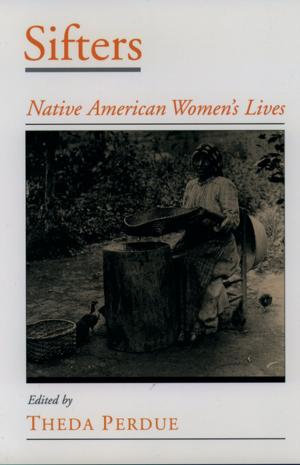The Oxford Handbook of the British Musical
Nonfiction, Entertainment, Music, Music Styles, Musicals, Pop & Rock, Popular| Author: | ISBN: | 9780199988761 | |
| Publisher: | Oxford University Press | Publication: | November 21, 2016 |
| Imprint: | Oxford University Press | Language: | English |
| Author: | |
| ISBN: | 9780199988761 |
| Publisher: | Oxford University Press |
| Publication: | November 21, 2016 |
| Imprint: | Oxford University Press |
| Language: | English |
The Oxford Handbook of the British Musical provides a comprehensive academic survey of British musical theatre offering both a historical account of the musical's development from 1728 and a range of in-depth critical analyses of the unique forms and features of British musicals, which explore the aesthetic values and sociocultural meanings of a tradition that initially gave rise to the American musical and later challenged its modern pre-eminence. After a consideration of how John Gay's The Beggar's Opera (1728) created a prototype for eighteenth-century ballad opera, the book focuses on the use of song in early nineteenth century theatre, followed by a sociocultural analysis of the comic operas of Gilbert and Sullivan; it then examines Edwardian and interwar musical comedies and revues as well as the impact of Rodgers and Hammerstein on the West End, before analysing the new forms of the postwar British musical from The Boy Friend (1953) to Oliver! (1960). One section of the book examines the contributions of key twentieth century figures including Noel Coward, Ivor Novello, Tim Rice, Andrew Lloyd Webber, director Joan Littlewood and producer Cameron Macintosh, while a number of essays discuss both mainstream and alternative musicals of the 1960s and 1970s and the influence of the pop industry on the creation of concept recordings such as Jesus Christ Superstar (1970) and Les Misérables (1980). There is a consideration of "jukebox" musicals such as Mamma Mia! (1999), while essays on overtly political shows such as Billy Elliot (2005) are complemented by those on experimental musicals like Jerry Springer: the Opera (2003) and London Road (2011) and on the burgeoning of Black and Asian British musicals in both the West End and subsidized venues. The Oxford Handbook of the British Musical demonstrates not only the unique qualities of British musical theatre but also the vitality and variety of British musicals today.
The Oxford Handbook of the British Musical provides a comprehensive academic survey of British musical theatre offering both a historical account of the musical's development from 1728 and a range of in-depth critical analyses of the unique forms and features of British musicals, which explore the aesthetic values and sociocultural meanings of a tradition that initially gave rise to the American musical and later challenged its modern pre-eminence. After a consideration of how John Gay's The Beggar's Opera (1728) created a prototype for eighteenth-century ballad opera, the book focuses on the use of song in early nineteenth century theatre, followed by a sociocultural analysis of the comic operas of Gilbert and Sullivan; it then examines Edwardian and interwar musical comedies and revues as well as the impact of Rodgers and Hammerstein on the West End, before analysing the new forms of the postwar British musical from The Boy Friend (1953) to Oliver! (1960). One section of the book examines the contributions of key twentieth century figures including Noel Coward, Ivor Novello, Tim Rice, Andrew Lloyd Webber, director Joan Littlewood and producer Cameron Macintosh, while a number of essays discuss both mainstream and alternative musicals of the 1960s and 1970s and the influence of the pop industry on the creation of concept recordings such as Jesus Christ Superstar (1970) and Les Misérables (1980). There is a consideration of "jukebox" musicals such as Mamma Mia! (1999), while essays on overtly political shows such as Billy Elliot (2005) are complemented by those on experimental musicals like Jerry Springer: the Opera (2003) and London Road (2011) and on the burgeoning of Black and Asian British musicals in both the West End and subsidized venues. The Oxford Handbook of the British Musical demonstrates not only the unique qualities of British musical theatre but also the vitality and variety of British musicals today.
